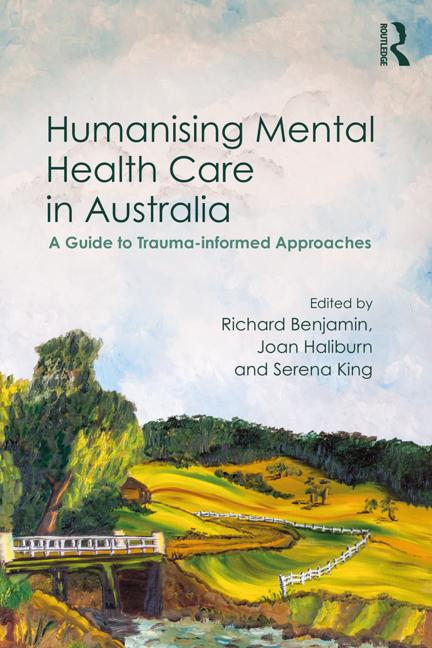Our very own Dr Johanna Lynch has had a chapter included in a new mental health textbook launched this month, entitled Humanising Mental Health in Australia: a guide to trauma-informed approaches. Her chapter, co-authored with eminent Norwegian GP researcher Anna Luise Kirkengen, is entitled Biology and Experience Intertwined: trauma, neglect and the physical body. We asked her for a sneak preview of the chapter:
Johanna, what inspired you to do research in this area?
This chapter draws together my clinical experience and international research on how our life stories impact our bodies. This has been an area that is directly important to my patients and that I believe could help medicine to see the importance of understanding peoples’ life story.
Can you give us a bit of a summary of how the mind and the body work together and impact each other?
One of the first researchers to notice this link was a young Czechoslovakian medical student in the 1950s, Hans Selye. He coined the term “stress” that has become an everyday word to describe the impact of illness and life experience (or “stressors”) on human bodies. Other researchers have differentiated between ‘eustress’ (ordinary challenges of living), ‘tolerable stress’ and ‘toxic stress’ where you do not have the “buffering” of a safe relationship to help you cope. This strand of research has expanded into researching how the body handles the pressure of adapting to our life (known as ‘allostatic load’). This adaptation ranges from our knees adapting to our increased weight, to our neurological, endocrine (including how our bodies manage sugar) and immune systems adapting to relational threat, loneliness or disconnection. Some researchers have even been able to show that wounds heal better if we are in happy marriages, that we feel less pain if our hand is held by someone we trust, and we have less cardiac death if we are more hopeful.
You also talk in this book chapter about the relationship between childhood experiences and brain development as well as the connection of childhood experiences and health beahviours. Can you tell us a bit more about that?
The other key area shining light on this area is research into the impact of the quality of relationships on the structure and connectivity of the brain. As one trauma researcher Bessel van der Kolk summarises: “if you feel safe and loved, your brain becomes specialized in exploration, play and cooperation. If you are frightened and unwanted, it specializes in managing feelings of fear and abandonment” (van der Kolk 2014 p. 56). Other researchers have highlighted the impact on the brain of childhood bullying, non-verbal emotional abuse, seeing our siblings hurt as well as other forms of trauma and neglect, including a missing or intoxicated parent.
A key area of research in this area has been going on for the last 20 years is the Adverse Childhood Experiences Study. This study came from an observant Californian preventative health clinician Vincent Felitti. He helped people lose weight and discovered a large number who had reasons to hide in their weight had suffered childhood trauma and neglect. Initially he was ridiculed by his colleagues – but he has now been able to show without doubt, that people’s bodies (and life expectancy) are impacted directly (and indirectly through altered coping behaviours like smoking) by childhood experience. He has also been able to show that just being asked if you want to talk about what happened to you (even if you answer no) makes a difference to your health. If you want to learn more about this – there is a great TED talk by Nadine-Burke Harris on this topic.
So how does this information affect us and how we should look after our physical health?
Well it means that your life story (and those you care for) is important and should be part of your health care clinician’s understanding of you. It also means that there is hope for healing – that our brains and bodies can heal in the presence of calming connected relationships. For me, it also means how amazingly interconnected our lives are to the bodies that carry us around and to those who are near us on the journey. Hope and love do matter after all.
If you are interested in exploring the connection between your childhood experiences and your physical health in more detail contact us on 07 38229983 to book an appointment with Dr Johanna Lynch.
Share this Post

